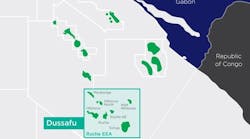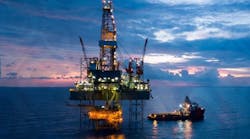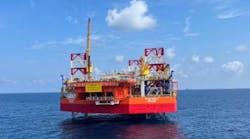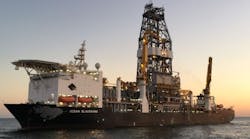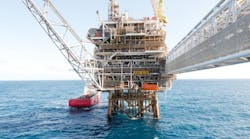Offshore staff
GODALMING, UK — Hurricane Energy has explained its reasons for not drilling an additional production well at its basement Lancaster oilfield west of Shetland.
The company first discussed the P8 well with the UK regulators in 2021, with talks resuming early in 2022. At that time, it appeared that the extra production could clear its debt.
Lancaster’s originally approved development plan included flaring as the gas disposal mechanism, and the North Sea Transition Authority’s (NSTA) approval of an amendment to this plan allowed for production below the bubble point.
Hurricane said it had worked with Bluewater, owner/operator of the FPSO Aoka Mizu that hosts Lancaster’s early production system, to reduce the project’s emissions and had continued to seek ways of further limiting the environmental footprint.
One issue was the flare volumes and the impact that any additional production would have. But the situation the company faced was that retrofitting of a new gas export or disposal system to the existing development would be technically demanding and would incur a high capex.
The anticipated recovery of gas from an additional well, including the benefit of the field life extension, called into question the economics of the investment.
Hurricane said it was fully aware of the challenge the NSTA faces in terms of the interaction between maximizing economic recovery from UK offshore production while at the same time reducing emissions. Therefore, it proposed that all incremental emissions from the new well be covered by verifiable carbon offsetting.
However, feedback from the NSTA during the six months of interaction was that the NSTA might still not grant the consents when requested.
The board concluded that the additional financial commitments to offshore equipment suppliers and the associated financial risk of proceeding with P8 was too great.
05.26.2023





